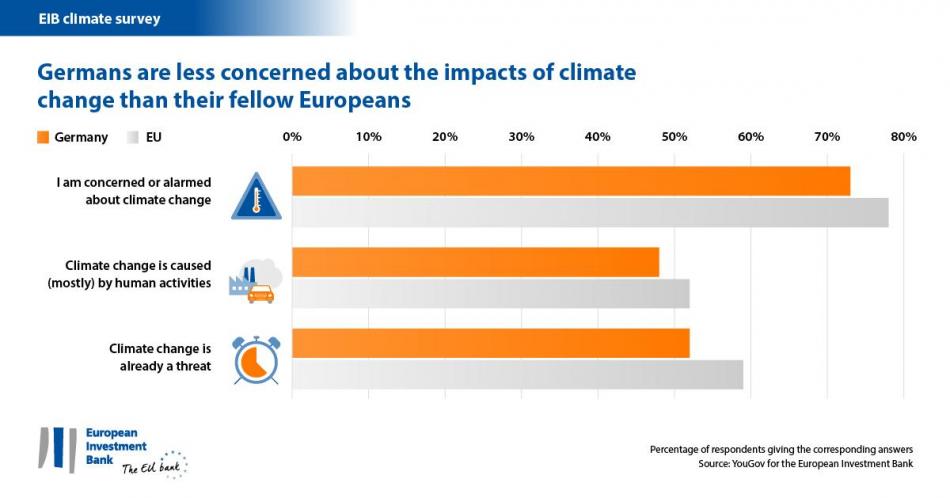Global CO2 price better than national coal exit- govt economy advisors
Clean Energy Wire
Advisory council on economy makes case for global CO2 price, says German coal exit not efficient
The German Council of Economic Experts has suggested that instead of “national energy transitions and action programmes”, a global CO2 price would be the better system to reduce greenhouse gas emissions. In its 2018/19 annual report, the council says that difficulties in international coordination for such a pricing scheme should not be used as an excuse for Germany to make its own national measures. EU member states should focus on a working CO2 price within the union. The council warns that a German coal exit would only lead to more emissions in other countries and increase economic costs for Germany alone.
Find the report in German with a partial translation into English here.
Also read CLEW's interview with the chair of the German Council of Economic Experts Christoph M. Schmidt, and find an article on Germany’s environment minister pushing for a national CO2 price here.
Clean Energy Wire
Germans are a little less worried about climate change than other Europeans – EIB survey
A climate survey published by the European Investment Bank (EIB) shows a north-south divide in EU citizens’ sentiment towards global warming. Southern Europeans are more concerned and see it as a more immediate threat compared to northern Europeans, who are also less convinced that warming is due to human activities. 74 percent of Germans describe themselves as “concerned or alarmed” when thinking about climate change, whereas the European average is 78 percent, according to the survey conducted by YouGov for EIB. Unlike in other European countries, in Germany the older generation is more convinced that global warming is man-made than younger people (18-34 year-olds).
Find the survey results of different countries and comparisons with the US and China in English here and the data here.
For the results of previous surveys of this kind see here and here.

Handelsblatt
Government makes no progress in increasing building efficiency
It has become more uncertain than ever whether the government will manage to introduce financial incentives for the thermal insulation of buildings as promised in the coalition treaty, writes Klaus Stratmann in business daily Handelsblatt. A finance ministry reply shows that the government has barely done anything to get the proposal off the ground. The Green’s Julia Verlinden called the reply an “embarrassing declaration of bankruptcy”.
Read the article in German here.
For background on the role of efficiency in the Energiewende, read the dossier Taming the appetite for energy.
Reuters
EU executive conditionally approves Daimler, BMW car-sharing deal
The European Union’s competition authority has approved the plan of German luxury carmakers Daimler and BMW to combine their car-sharing businesses, subject to conditions, reports Gabriela Baczynska for Reuters. The deal includes car-sharing units Car2Go and DriveNow as well as ride-hailing, parking and charging services and is aimed at competing with US rival Uber and China’s Didi Chuxing.
Read the report in English here.
For background, read the dossier BMW, Daimler, and VW vow to fight in green transport revolution and the factsheets Early e-car starter BMW plans new mobility sprint and Reluctant Daimler plans “radical” push into new mobility world.
Die Welt
Tesla overtakes first German carmaker in US
Tesla sold more cars than Audi in the US in September and October in a first for Germany’s luxury carmakers, rounding off a bleak weak for the companies, reports Nikolaus Doll in Die Welt. Tesla delivered 21,800 cars to US buyers in October, a lead of 36 percent over VW subsidiary Audi. “The trouble of conventional carmakers with [Tesla CEO Elon] Musk is only just beginning,” commented car industry expert Ferdinand Dudenhöffer. In addition, transport minister Andreas Scheuer demanded concrete financial commitments for diesel retrofits at a meeting today, while carmakers posted significant drops in third-quarter profits this week.
Read the article in German here.
Read a Wire article on Tesla sales in English here.
For background, read the dossier BMW, Daimler, and VW vow to fight in green transport revolution.
Handelsblatt / Enyway
Hamburg start-up Enyway transforms citizens into power producers for 39 euros
Hamburg start-up Enyway has started to rent out pizza box-sized fractions of its first large solar-array for 39 euros each, report Jürgen Flauger and Kathrin Witsch in Handelsblatt. “The average Joe can now actively participate in the energy transition,” said Enyway manager Heiko von Tschieschwitz, who also founded Germany’s first and now largest green power provider Lichtblick almost 20 years ago. “The investment into a pizza parcel pays for itself within a few months,” the company says. Enyway uses blockchain-technology to identify individual PV panel fractions and delivers the power they generate to the corresponding investors. The young company “wants to make classic utilities redundant. Enyway is an online marketplace that directly brings together the operators of wind turbines and solar roofs with consumers,” write Flauger and Witsch.

